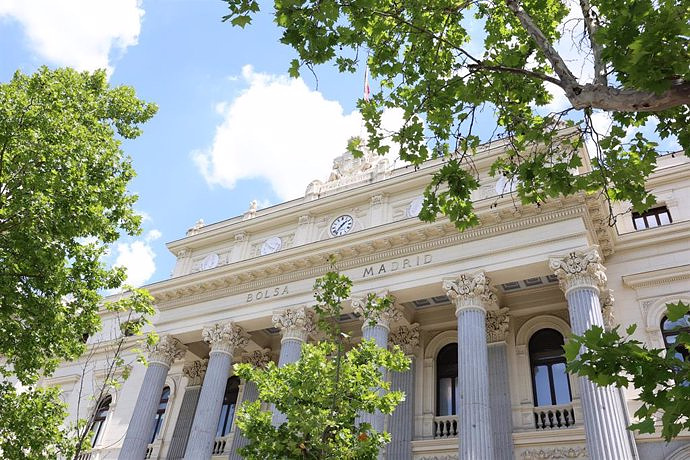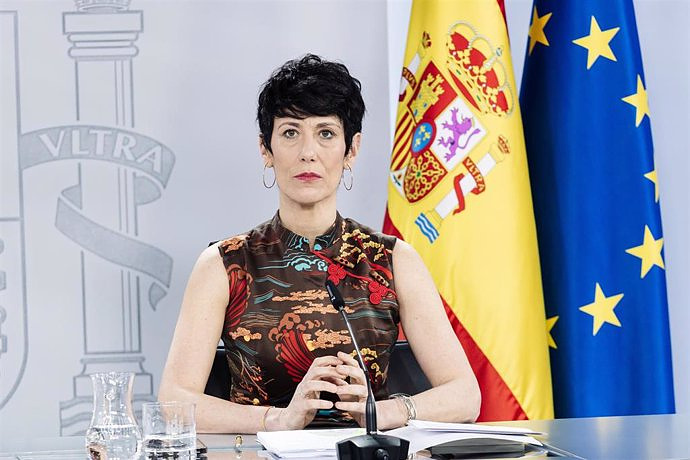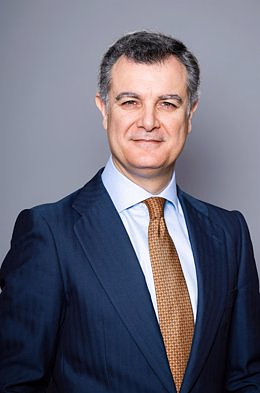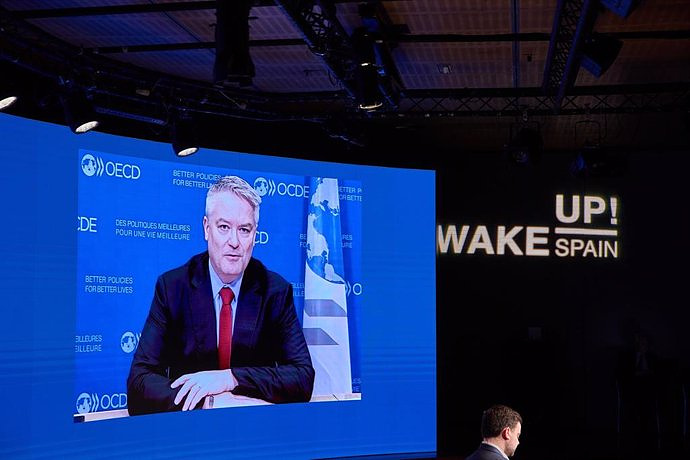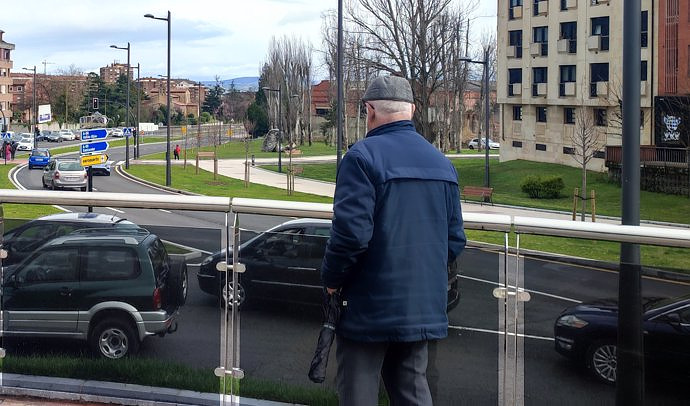The Prosecutor's Office asked the Supreme Court to increase their sentences to 10 years, from the 4 and 3 years established by the TSJCyL
The Supreme Court (TS) has sentenced the two convicted former players of the 'Arandina case' to 9 years in prison, which means raising their sentences --from the 4 and 3 years that the Superior Court of Justice of Castilla y León had set (TSJCyL)-- after eliminating a mitigation when estimating the Prosecutor's appeal, although not entirely because the Public Ministry requested a 10-year sentence and the TS has left it one year less due to the application of the 'law of only yes is yes' '.
As reported by the High Court, the magistrates have upheld the appeal of the Prosecutor's Office and the accusations and have aggravated the sentences for the two convicted in the 'Arandina case' by suppressing an analogical mitigation applied by the Superior Court of Castilla y León.
The court, however, has imposed a lower sentence on those convicted than the one that would have corresponded before the reform promoted by the Ministry of Equality, since the penalty is now less than one year in prison in this specific case. Thus, the Supreme Court has agreed in this case to apply the law to the benefit of the accused.
The decision of the Criminal Chamber has had the particular vote of magistrate Ángel Luis Hurtado, who has understood that the analogical mitigation that the Castilian-Leonese Supreme Court already applied should have been maintained, with a slight reduction in sentences, considering it also more beneficial. the new law.
On the sidelines, the magistrates have stressed that the Organic Law of Comprehensive Guarantee of Sexual Freedom "may be applied to the benefit of the prisoner when a lower penalty is now set in those cases in which it proceeds."
They have qualified, however, that it must be done "analyzing case by case, and not globally, both in matters pending trial, appeals and cassation and in criminal enforcement."
It is the first time that the Supreme Court has publicly ruled on the law that came into force on October 7, although it is not the first time that it has analyzed a case of sexual abuse and/or assault after said reform. Legal sources consulted by Europa Press have indicated that this Tuesday the Second Chamber will analyze other appeals against cases of sexual abuse and assault that occurred in the Canary Islands, Andalusia and Castilla La Mancha. Last week, they specified, the court already examined others, including one referring to the Balearic Islands.
THE INITIAL JUDGMENT
The decision of the Supreme Court takes place after the magistrates have met to deliberate on the appeals presented against the ruling of the Superior Court of Justice of Castilla y León (TSJCyL) in the so-called 'Arandina case', which meant acquitting one of the three former club players convicted of sexual assault on a minor and reduce the sentence of the other two from 38 years in prison to 4 and 3.
Specifically, the Criminal Chamber has studied the challenges made by the Prosecutor's Office, the private and popular accusations and the defenses of the two soccer players who continue to be sentenced. This review is part of the normal course of appeals, although it occurs in the midst of the controversy caused by the entry into force of the so-called 'law of only yes is yes', according to the legal sources consulted.
The first sentence for the 'Arandina case' was handed down in December 2019 by the Provincial Court of Burgos, sentencing the three soccer players to 38 years in prison each as perpetrators and necessary collaborators of a crime of sexual assault committed two years earlier against a minor. , also appreciating the existence of environmental intimidation.
According to the proven facts, the victim --then 15 years old-- went to the apartment that the three young people shared in the Burgos town of Aranda de Duero, where the sexual assault took place without her being able to react, due to the different physical complexion of the condemned and the minor, since the three acted on her with the light off and by surprise.
This first ruling was appealed and the TSJCyL decided in March 2020 to classify the facts as sexual abuse. The court ruled out intimidation when seeing contradictions in the victim's account and appreciated an extenuating circumstance due to the closeness of age and maturity between the convicted person and the victim. This meant lowering the sentences of 'Lucho' and 'Viti' to 4 and 3 years in prison, respectively.
As for the third convicted person, the Castilian-Leonese court acquitted him and ruled out his criminal responsibility for what happened in the living room of the house. The Burgos Court had only acquitted him of what happened in his room.
As reflected in this second sentence, the victim recounted that, in the living room of the house, she had sexual contact with the three players due to the blockade due to fear and that, later, she had a complete sexual relationship with one of them in his room.
THE RESOURCES
The defenses of 'Lucho' and 'Viti' had requested the acquittal in their respective resources, while the private prosecution exercised by the victim and the public prosecution of the Clara Campoamor Association had requested the Supreme Court to sentence them again to 38 years in prison. .
The Prosecutor's Office, for its part, proposed at the time to raise the sentence of these two players to 10 years in prison, as perpetrators of a crime of sexual abuse of a minor under 16 years of age but eliminating the extenuating circumstance that included the TSJCyL.
Prosecutor Paloma Abad argued in a recent letter that with the 'law of only yes is yes' it is possible to maintain her initial request for 10 years in prison because the new penalty range for this conduct is between 6 and 12 years in prison.
However, in the event that the Supreme Court did not consider this option, the prosecutor demanded that the current sentence for sexual abuse be maintained with said mitigation --to 3 and 4 years in prison--, arguing that it was not necessary to lower it because it fit likewise, since the new fork for this assumption goes from 2 to 4 and a half years.

 Exploring Cardano: Inner Workings and Advantages of this Cryptocurrency
Exploring Cardano: Inner Workings and Advantages of this Cryptocurrency Seville.- Economy.- Innova.- STSA inaugurates its new painting and sealing hangar in San Pablo, for 18 million
Seville.- Economy.- Innova.- STSA inaugurates its new painting and sealing hangar in San Pablo, for 18 million Innova.- More than 300 volunteers join the Andalucía Compromiso Digital network in one month to facilitate access to ICT
Innova.- More than 300 volunteers join the Andalucía Compromiso Digital network in one month to facilitate access to ICT Innova.-AMP.- Ayesa acquires 51% of Sadiel, which will create new technological engineering products and expand markets
Innova.-AMP.- Ayesa acquires 51% of Sadiel, which will create new technological engineering products and expand markets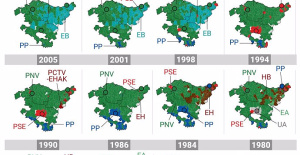 Historical results of the 2024 Basque elections, municipality by municipality
Historical results of the 2024 Basque elections, municipality by municipality Iran assures that any action by Israel will have an "immediate and highest level" response: "They will regret it"
Iran assures that any action by Israel will have an "immediate and highest level" response: "They will regret it"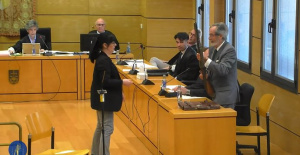 The Ciudad Real Court sentences the man who killed a thief with two shots in his home to 6 years
The Ciudad Real Court sentences the man who killed a thief with two shots in his home to 6 years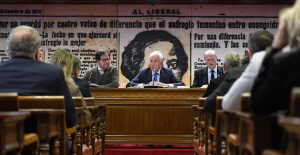 PP and PSOE clash in the Senate over Koldo's appearance after a socialist writing on a work plan
PP and PSOE clash in the Senate over Koldo's appearance after a socialist writing on a work plan How Blockchain in being used to shape the future
How Blockchain in being used to shape the future Not just BTC and ETH: Here Are Some More Interesting Coins Worth Focusing on
Not just BTC and ETH: Here Are Some More Interesting Coins Worth Focusing on Valencia displays its "innovative and technological potential" at the Emerge Americas event in Miami
Valencia displays its "innovative and technological potential" at the Emerge Americas event in Miami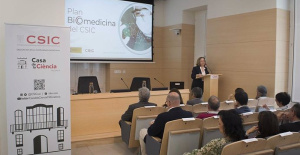 The CSIC incorporates the challenges of robotics, nanotechnology and AI in the new strategic plan for biomedicine
The CSIC incorporates the challenges of robotics, nanotechnology and AI in the new strategic plan for biomedicine Innovation allocates 9.1 million to train 74,000 people and guarantee digital inclusion
Innovation allocates 9.1 million to train 74,000 people and guarantee digital inclusion LIFE SPOT manages to develop new green treatments that eliminate groundwater contamination
LIFE SPOT manages to develop new green treatments that eliminate groundwater contamination A million people demonstrate in France against Macron's pension reform
A million people demonstrate in France against Macron's pension reform Russia launches several missiles against "critical infrastructure" in the city of Zaporizhia
Russia launches several missiles against "critical infrastructure" in the city of Zaporizhia A "procession" remembers the dead of the Calabria shipwreck as bodies continue to wash up on the shore
A "procession" remembers the dead of the Calabria shipwreck as bodies continue to wash up on the shore Prison sentences handed down for three prominent Hong Kong pro-democracy activists
Prison sentences handed down for three prominent Hong Kong pro-democracy activists ETH continues to leave trading platforms, Ethereum balance on exchanges lowest in 3 years
ETH continues to leave trading platforms, Ethereum balance on exchanges lowest in 3 years Investors invest $450 million in Consensys, Ethereum incubator now valued at $7 billion
Investors invest $450 million in Consensys, Ethereum incubator now valued at $7 billion Alchemy Integrates Ethereum L2 Product Starknet to Enhance Web3 Scalability at a Price 100x Lower Than L1 Fees
Alchemy Integrates Ethereum L2 Product Starknet to Enhance Web3 Scalability at a Price 100x Lower Than L1 Fees Mining Report: Bitcoin's Electricity Consumption Declines by 25% in Q1 2022
Mining Report: Bitcoin's Electricity Consumption Declines by 25% in Q1 2022 Oil-to-Bitcoin Mining Firm Crusoe Energy Systems Raised $505 Million
Oil-to-Bitcoin Mining Firm Crusoe Energy Systems Raised $505 Million Microbt reveals the latest Bitcoin mining rigs -- Machines produce up to 126 TH/s with custom 5nm chip design
Microbt reveals the latest Bitcoin mining rigs -- Machines produce up to 126 TH/s with custom 5nm chip design Bitcoin's Mining Difficulty Hits a Lifetime High, With More Than 90% of BTC Supply Issued
Bitcoin's Mining Difficulty Hits a Lifetime High, With More Than 90% of BTC Supply Issued The Biggest Movers are Near, EOS, and RUNE during Friday's Selloff
The Biggest Movers are Near, EOS, and RUNE during Friday's Selloff Global Markets Spooked by a Hawkish Fed and Covid, Stocks and Crypto Gain After Musk Buys Twitter
Global Markets Spooked by a Hawkish Fed and Covid, Stocks and Crypto Gain After Musk Buys Twitter Bitso to offset carbon emissions from the Trading Platform's ERC20, ETH, and BTC Transactions
Bitso to offset carbon emissions from the Trading Platform's ERC20, ETH, and BTC Transactions Draftkings Announces 2022 College Hoops NFT Selection for March Madness
Draftkings Announces 2022 College Hoops NFT Selection for March Madness
